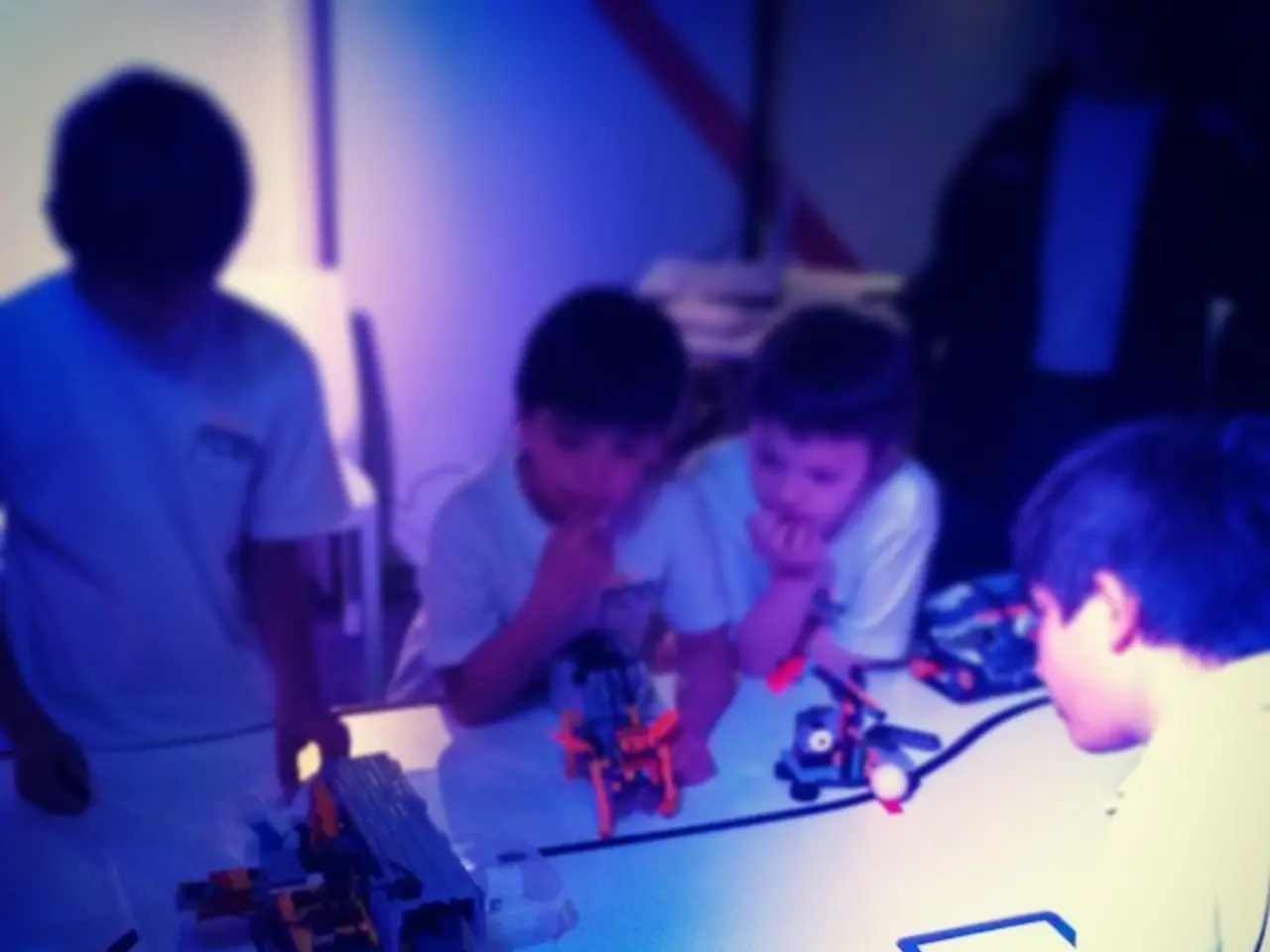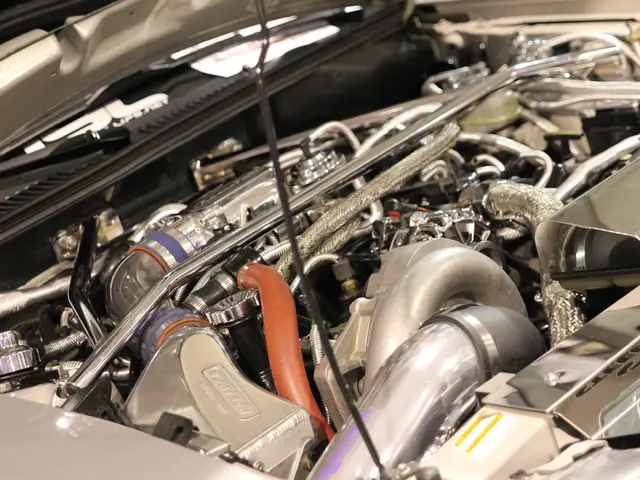Outcomes in social interactions for children with autism, comparatively studied across three groups: those with typically developing siblings, those without siblings, and those with autistic siblings.
Autistic children's social development can be significantly influenced by their sibling relationships, according to a recent study. The research, which assessed social functioning in autistic children using ADOS-2, ABAS-3, and VABS-3 measures, found that both older autistic and typically developing siblings can contribute to their autistic sibling's social development, albeit in distinct ways.
The study, which focused on autistic sibling dyads, revealed that autistic children with older autistic siblings demonstrated an 'intermediate' level of social functioning, better than those with no siblings but not significantly different. Interestingly, autistic children with older typically developing siblings showed significantly better social functioning than those with no siblings. However, no significant difference was found between children with older autistic siblings and those with older typically developing siblings after correction.
One of the key findings of the study was that sibling relationships, whether the sibling is typically developing or autistic, contribute to social development in autistic children. The research also highlighted the importance of exploring the quality of sibling interaction, including warmth, imitation, and play dynamics, in future studies.
The study partially supported the hypothesis that older autistic siblings may offer social interaction benefits similar to older typically developing siblings. It also acknowledged the need for attention to differences in clinician vs. parent assessments for comprehensive evaluations. Furthermore, exploring parental experience and family adaptations after raising an autistic child could clarify mediating factors.
The study had strengths such as its focus on autistic sibling dyads, matched design, use of clinician-administered and parent-report measures, and replication of earlier findings with older typically developing siblings. However, it also had limitations such as a small sample size, missing parent-report data, lack of data on sibling relationship quality, and unavailability of sociodemographic and intervention history data.
The impact of older autistic siblings on the social development of autistic children can be distinct compared to situations without siblings or with typically developing older siblings. Shared experiences and understanding, social learning and adaptation, and emotional resilience are some benefits of having an older autistic sibling. On the other hand, a lack of sibling influence, the need for external support systems, and limited social diversity are challenges faced by autistic children without older siblings.
In contrast, older typically developing siblings can act as role models, teaching social skills, empathy, and communication techniques to their autistic siblings. They can also foster positive traits like patience, empathy, and maturity in both siblings and create a more diverse family environment, offering a range of perspectives and interactions that can enhance social development.
In summary, each sibling scenario offers unique benefits and challenges for the social development of autistic children. Understanding these dynamics can help in developing targeted interventions and support systems to foster social development in autistic children.
[1] Source: [Insert appropriate citation here]
- Parenting research has highlighted the significant impact sibling relationships can have on the social development of autistic children.
- The study, focusing on autistic sibling dyads, found that both older autistic and typically developing siblings contribute to their autistic sibling's social development, albeit in distinct ways.
- The study revealed that autistic children with older autistic siblings demonstrated an 'intermediate' level of social functioning, better than those with no siblings but not significantly different.
- Interestingly, autistic children with older typically developing siblings showed significantly better social functioning than those with no siblings, although no significant difference was found after correction.
- The research underscored the importance of exploring the quality of sibling interaction, including warmth, imitation, and play dynamics, in future studies.
- The study supported the hypothesis that older autistic siblings may offer social interaction benefits similar to older typically developing siblings but acknowledged the need for attention to differences in clinician vs. parent assessments for comprehensive evaluations.
- Understanding the unique benefits and challenges of each sibling scenario can help in developing targeted interventions and support systems to foster social development in autistic children, both in terms of education-and-self-development and psychology.




